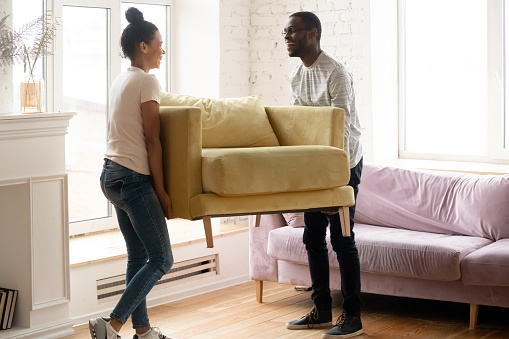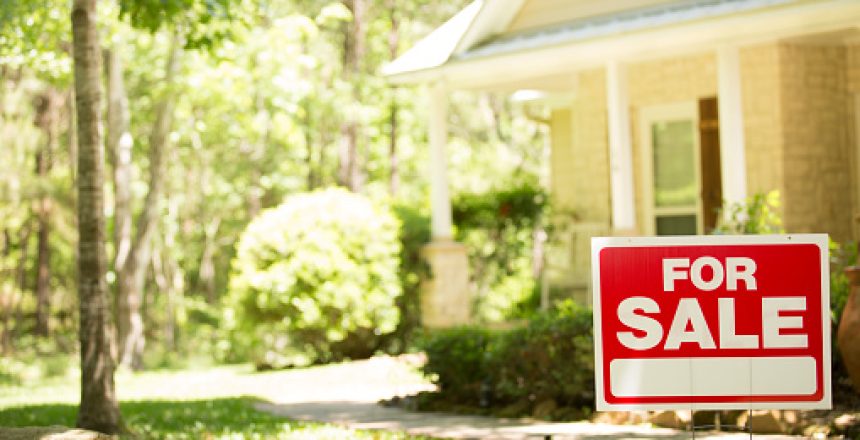Sell a House You Live In Faster with These Tips from Experienced Texas Realtors®
Most homeowners don’t live in the houses they’re selling, but that doesn’t mean that it’s uncommon to sell a house in Texas while living in it. In fact, the latest data from the National Association of Realtors® (NAR) reveals that up to ~40% of home sellers may live in houses they’re also selling. Usually, that’s because homeowners need the proceeds from a current sale to buy their next home.
So, if you’re thinking about selling a house in Texas while you live in it — or if you’re already in this boat with a house that’s on the market — this guide is for you. It shares helpful insights on:
- Before You List It: How to Prep Homes to Sell While Living in Them
- After You List It: How to Handle Showings & Your “Showroom” Living Space
- 3 Facts to Know About Selling a House While Living in It
- Should I Live in My House While Selling It?
Before You List It: How to Prep Homes to Sell While Living in Them
Generally, it’s a smart move to wait to put your house on the market — whether or not you’re living in it — until after you’ve done the following:

- Clean: Meticulously and thoroughly clean the house before listing it. This means doing a top-to-bottom, inside-and-out cleaning of the house so that flooring, walls, windows, every room in the home, and the property outside of it are all spick and span. A clean house will show better and be far more appealing to buyers than an untidy or, worse yet, a dirty house.
- Declutter: Remove extra furniture, stored items in rooms, or extra stuff crammed into closets, putting these items into storage temporarily. You want to only keep enough furniture and items to live in the home and to stage each room in the house — and don’t underestimate the power of open space in showing off flow.
- Depersonalize: Take down personal pictures, religious items, political items, and anything potentially “controversial” or off-putting. You want buyers to walk into the house and be able to see themselves living there — and that’s going to be a little more challenging to do if your personal items are still around every corner.
- Repair broken features: Fix any smaller items that are damaged or broken, and price out the cost of larger repairs, like roof or plumbing repairs. If you can afford to make the bigger fixes and you can wait a little longer before listing a house, it’s typically prudent to go that route, so you’re in a better position to get top dollar for the home. If that’s not feasible, think about your asking price and what’s reasonable in light of the damage a buyer may have to repair.
- Consider refreshing certain features: Fresh paint, new fixtures and doors, and even new window boxes can give a house a lovely facelift, adding bright elements that can appeal to prospective buyers.
- Consider renting furniture to stage your house: If your furniture isn’t in the best shape, you may want to rent a few pieces or enough to outfit the home, so that it shows better.
- Spruce up curb appeal: Mow the lawn, pull the weeds, and consider whether you want to add in some light (or heavier) landscaping. Also, don’t forget about your porch and mailbox too. Cleaning up and enhancing these exterior elements can go a long way with curb appeal and buyers.
Investing some time and elbow grease into the above steps can mean a stronger debut when you first list the house. It may even help you get faster traction with (and better offers from) prospective buyers.
After You List It: How to Handle Showings & Your “Showroom” Living Space
Once your house is on the market, here’s what you can do to navigate showings and maintain a pristine living space that’s always “show ready”:

- Establish showing times: Carve out pockets for showings in your schedule. Generally, it’s best for you, as the seller, to not be at the house while a Realtor shows it (buyers don’t tend to feel as comfortable in showings when sellers are present). So, try to plan some activity or a place you can be when your house is open for showings. While that could be a friend or family member’s house, it could also be a 24-hour coffee shop or diner in the neighborhood.
- Stay flexible with off-schedule showings: Buyers may request to see your house outside of the showing hours you’ve set for any number of reasons. The more flexible and accommodating you can be with these requests, the better. You never know when you may be dealing with a well-qualified buyer who’s ready to put in an offer, and it’d be a shame to lose that simply because the buyer can’t see the house when you want to show it.
- Keep it tidy day to day: Make the bed, clean up after yourself, and throw out the garbage every day. Don’t leave clothing or laundry around. Try to treat your home like a showroom, and get in the habit of picking up after yourself (and your family) after every meal, evening, or “event” in the home.
- Be extra careful with valuables and personal info: Fine jewelry, cash, titles, social security cards, and more should NOT be lying around anywhere, available for the random visitor to see and swipe. Instead, keep these items locked away safely, either in a safe in the house or somewhere off-site. Similarly, don’t leave your mail or personal documents, with sensitive info around the home. Find a private, secure place for these items; if necessary, consider getting a P.O. Box, so your mail is delivered off-site while your house is on the market.
- Consider writing a “Welcome” Letter for buyers: Some sellers will put together a brief “Welcome” letter for buyers, sharing a little about their house, their time in the house, and their favorite features of a home. These letters may even share some of the reasons for selling the house. This isn’t a “tell-all” or super sappy letter, however. It’s simply meant to orient the buyers a little and invite them into what you’ve loved about the house, so they can see some of its great features through your eyes.
- Contain pets: If you can’t contain a pet in a safe space, consider moving the pet off-site, taking them to a local dog park or boarding them for a few hours or a day each week, if needed.
Working with an experienced Realtor when listing and showing a house that you’re also living in can be invaluable, especially when it’s time to answer buyers’ questions and start fielding offers.
3 More Facts to Know About Selling a House While Living in It
If you’re selling a house while living in it, here are some more things you’ll want to know and keep in mind, so you can make the best decision for you and your family going forward:

- If you can rent or live elsewhere when selling a home, that’s usually best: Living in a house while selling it can be stressful for you, and it’s not really ideal from the buyer’s perspective either because they may anticipate more issues trying to purchase that house. So, living in a house you’re selling should not generally be the first or automatic choice if there are multiple options on the table.
- Know what closing terms you need: If you are going to live in a house while selling it, how long will you need to vacate the property once it sells? How flexible can you be with the closing terms? Your timetable for moving out of the house will likely become part of the conversation around offers and potential closing terms. If buyers have different ideas and needs than sellers when it comes to vacating the property, negotiations could get complex quickly.
- You never get a second chance to make a first impression with buyers: From curb appeal to open houses, the first time buyers see the exterior and interior of a house can be a make-or-break moment. If you want to truly make the most out of that moment and what comes next, it’s usually in your best interest to work with an experienced Realtor®.
Should I Live in My House While Selling It?
The answer to this question isn’t the same for everyone. While there can be financial benefits or a need to sell a house and live in it simultaneously, there’s a strong case for living elsewhere while a house is on the market. Still, regardless of whether you live in a house that you’re selling, navigating the process can be a whole lot easier with the experienced Realtors® at New Home Gurus.
We guide, advise, and support home sellers and buyers through the home sale process, assisting with offers, contingencies, negotiations, and closing. Plus, we split our commission with our clients at closing.
Home sellers and buyers who work with New Home Gurus can get back an average of $4,500 to $12,000 at closing.
How Much Cash Can You Get After Closing?
Call (281) 668-8124 or Contact Us to Find Out Now
We are standing by, ready to answer your questions and explain the details of our commission-sharing program.

